Table of Contents
“Get an Easy Part-Time Job”, They Said
Many people with chronic illness or a disability are unable to work full-time. You don’t see many of them working part-time jobs either. Why? (Unless they’re hiding in plain sight, which they often are. It’s a bit of a superpower.) All their education seems to have come to nought. They can’t advance their careers, nor partake in the modern rat race.
I’ve had people, even those who have seen me struggle with chronic illness, tell me to get a part-time job so that I can support myself and in turn, improve my self-esteem. They describe such part-time jobs as stress-free, with fixed and shorter working hours.
Whilst said with kind intentions, that very suggestion in itself tells me how much society in general just doesn’t understand – and will never understand – what living with chronic illness and chronic pain is like. And I don’t blame them for that. How could they possibly understand something so invisible and insidious? Something so rotten, yet looks whole, even good, on the outside? At the end of the day, they are only trying to look out for me, too.
*Disclaimer: This article is meant for educational purposes and is based on the author’s personal experiences. It is not to be substituted for medical advice. Please consult your own doctor before changing or adding any new treatment protocols. This post also contains affiliate links. It will cost you nothing to click on them. I will get a small referral fee from purchases you make, which helps with the maintenance of this blog (approx. $100/month). Read our Privacy Policy page for more information. Thank you!
The Stigma of Chronic Illness People Being Too ‘Lazy’ or ‘Proud’ to Work Part-Time Jobs
Or sometimes I see strangers make nasty and ignorant comments on social media or the papers. They accuse people with chronic illness who stay home all day for being ‘lazy’. That they aren’t trying hard enough, or lack willpower and self-respect, or that we’re letting our ‘ego’ of working a menial job hold us back.
These statements angered me in the beginning, but now I let them slide. There will always be mean people around who refuse to consider any other viewpoint but their own, and won’t get off their high horse. The only thing I can do is to educate those who want to listen and learn. And to provide articles such as these, for when those ignorant people do a Google search in secrecy, to confirm how ‘right’ or ‘wrong’ they are.
In this post I’ll list down some common part-time jobs that always seem to have positions available. ‘F&B warriors’, ‘sandwich artists’, ‘happiness managers’, ‘circulation officer’… yes you can tell I don’t like such cheesy titles. Sometimes I need to squint and think, trying to figure out what sort of role that actually is. Are people truly happier with titles that come in frills and bows? But I digress, sorry.
Pin to Your Work, Podcast & Chronic Illness Boards:
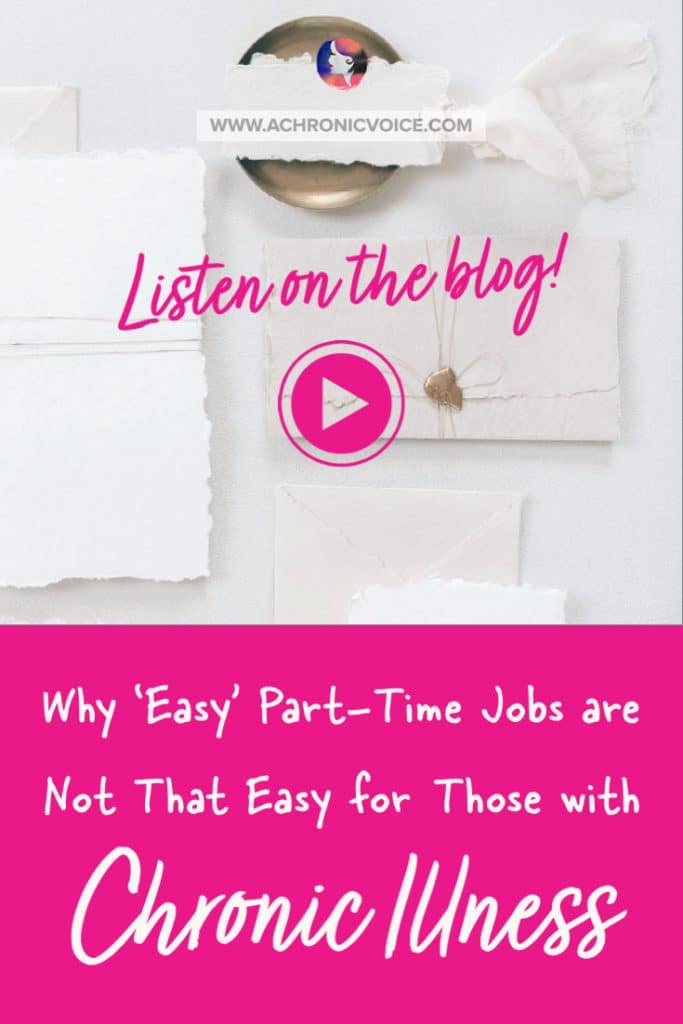
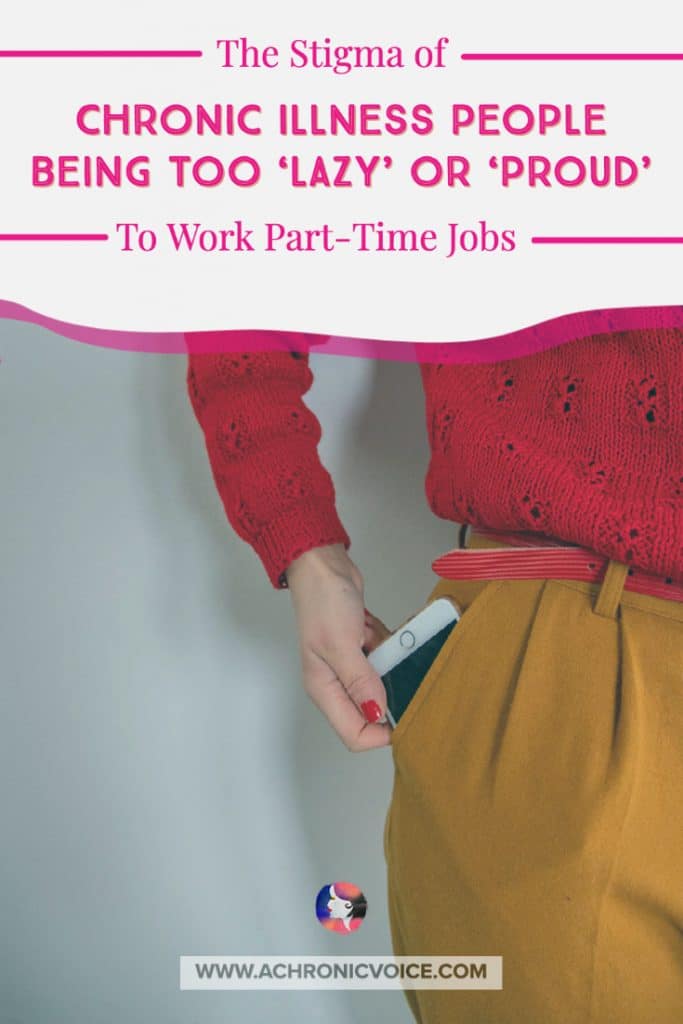
To Make It Clear, It’s Not That People with Chronic Illness Can’t Work at All
There are many articles out there that share about things people with chronic illness can do to earn some money. ‘Not easy’ doesn’t mean impossible, either. Sometimes it just takes more time, and definitely a lot more effort. People with chronic illness still have plenty of value, in the forms of skills, mindsets, charisma and more. Unique traits that belong to them as an individual, despite being chronically ill.
But the purpose of this post is to raise awareness on how certain ‘easy’ part-time jobs are not as simple as they sound. Factors and barriers that an abled-bodied, healthy person would not even have thought of as a problem to begin with at all. They might assess how tiring or hectic a job will be, but they will never factor in pain. And not purely ‘pain’. But what sort of pain, where, the threshold, ways to minimise it, how to pace, emergency plans and more.
Ready to take a peek into our strange world?
Pin to Your Chronic Illness, Work & Society Boards:
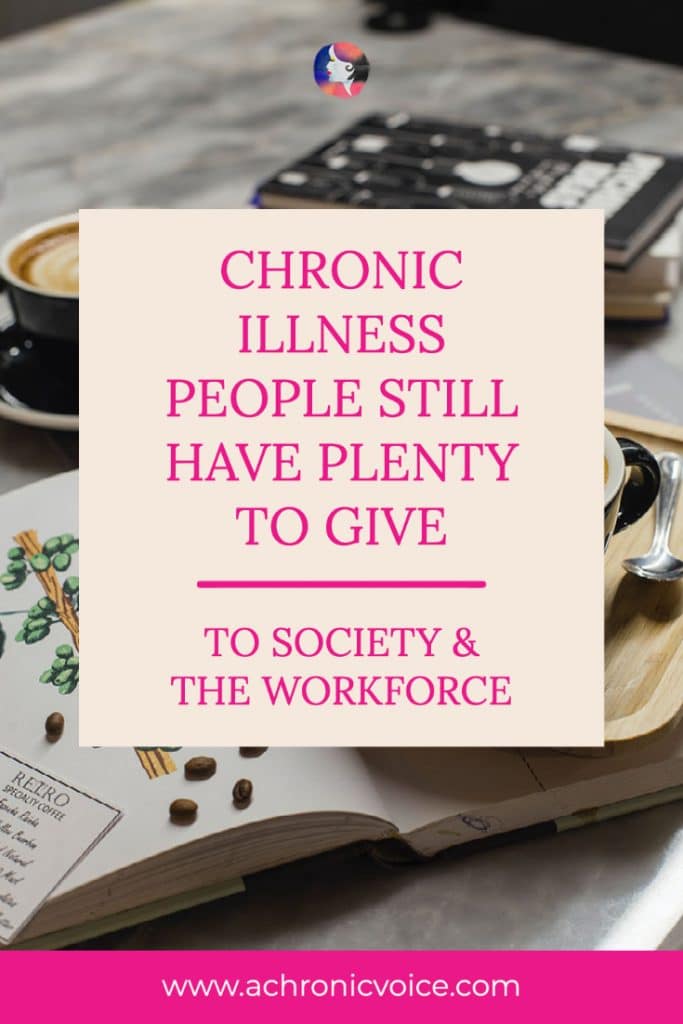
1. Dog Walker, Babysitter, Toilet Cleaner, Porter, Deliveryman/Woman, Caregiver, Security Guard, Etc
Let’s get the obvious ones out of the way first. They’re all so different, aren’t they?! But one thing they do share in common is how physical they are. The amount of manual labour, or simply moving about, is enough to dismantle us for a day, or a week, or a month. No, not kidding. When you live with chronic illness, payback is a bitch – and the mother of all bitches.
And no, these aren’t ‘light exercises to get us moving’. Yes, exercise is one thing in the pain management toolkit that can help in the long run. But unfortunately, those with chronic illness need to exercise on terms that their body dictates, which vary by the day, or even by the hour. Pushing it doesn’t give you ‘nice achy muscles’ that make you feel proud, strong and happy or give an endorphin rush. But ‘burning, inflammed, maybe I need to go to the hospital’ kind of pain.
2. Ice Cream Scooper & Barista
Perks: Free ice cream and coffee for all staff. You can have them for breakfast, lunch and dinner if you like! (If the company is generous enough that is.) Watching people’s faces light up with a smile as you serve them sounds like a fun and stress-free job, doesn’t it? You’re literally doling out cups of happiness in solid and liquid forms!
Fun fact: I’ve been an ice cream scooper, barista and crêpe maker before. Back when I was 17 and working part-time whilst still studying for my diploma in Interactive Media Design. I won’t deny that it was fun, but it certainly isn’t a job I could do now. At the end of every work day, my hands would be swollen. Have you ever scooped ice cream with an ice cream scoop? Even at home, I’m sure you put your ice cream out for a little while before scooping out that deliciousness because it’s solid. That or eat out of the tub.
Which customer wants semi-solid ice cream though? They paid good money for it. They want it as solid and cold as it can get. Oh, and as round as you can make em’. So you scoop, and scoop, and twirl and smile. Squeeze, release, stack, repeat. Then when you’re done for the day, you’re not quite done, yet. You need to mop and clean up all the happiness leftover on the walls, tables and floors. And count the happiness in the cash register for the boss.
An Extra Note About Swollen Hands & Household Chores
This is somewhat similar to doing household chores for me as well. I actually need to plan how much I use my hands for the day, before I hit my ‘achy, hands on fire, can’t bend my fingers anymore’ limit. You can see the puffy, red, splotchy swells on my hands, as Lupus and Sjögren’s Syndrome unleash their vengeance.
Mopping and changing the bedsheets are major contributors to hand swelling. Moderate contributors would be walking the dog, cleaning the birdcage full of mini poop and washing the dishes. Smaller contributors – but still energy draining – are things like turning taps on and off, pressing elevator buttons and more. Yes, every tiny contact with my hands adds up to the total pain score.
3. Cashier
Weird Fact: I actually like being a cashier, I’m not sure why, and get excited when there’s a self checkout machine! I find it calming to arrange the items and scan those barcodes. (Yes, weirdo.) Anyway, unless you’re the boss of your shop, cashiers usually stand on their feet for hours at a stretch. There are customers in line who want to get out asap as well, so no ‘please wait whilst I do some gentle yoga or stretches’ for even a minute.
This applies to part-time jobs like the ones above as well. I remember when I first started scooping ice cream, I wasn’t used to being on my feet all day. But my body adjusted to it after a while as I wasn’t as ill back then. It was just a different set of muscles needed, and muscles usually adapt.
Now, however, I know that the pain would accumulate and implode. Chronic illness forces your body to adapt to its demands, or it will bring you to your knees. I shudder at the thought of being a cashier. The self checkout machine is only for one or three bags of groceries, and I can take my own sweet time. To serve hundreds of customers a day might finally break my fetish for playing at cashier.
Scanning barcodes, lifting cans and tins and bottles and cartons, packing them into separate bags, pulling and pushing the cash register to collect and return change nonstop… I think my queue would snake out to be the longest one, and I’d be fired within a day. So nope, cashier doesn’t work either, sorry 🙁
4. Waiter or Waitress
Well if you’ve read the above two entries, you’d know that waitressing is like a level up. Standing on your feet plus balancing trays and glasses plus plastering a smile on your face full-time. On top of that, there may be horrid, fluorescent lighting, booming music and chatter, repulsive scents and/or allergy triggers laden in the air from somewhere.
How Sound, Lights & Smells Can Trigger Chronic Pain
By the way, I love a good metal concert or rock band at the pub. I love a good bassline, often more than a good electric solo. When I was younger, I’d worry so much when attending such an event, because of my epilepsy. The bass vibrations and electric screeches would sometimes cause my head to spin, and I’d worry about getting a seizure and freaking everyone out. Often at concerts I’d stay far, far behind because of this.
People with vestibular migraine, inner ear disorders, tinnitus and other balance issues will have similar problems with music and sounds. Balancing trays on top of that would require circus-level training. Bright or flashing lights are also a trigger for many with migraine and epilepsy. Then there’s people with MCAS who can react to just about anything in the air, and those with food allergies need to be cautious.
People with Celiac Disease can get ‘glutened’ simply from kissing someone who just ate something with gluten (not that they’d be kissing the customers of course 😉 ). Or simply from making and eating a sandwich on the same counter where something with gluten was placed on before.
Waitressing is a rather confusing part-time job and a bit of a minefield. On top of that, customers vary by the day, and expect good service. No resting bitch face on high pain days, or you’ll see your name on your employer’s Facebook reviews. If you’re in the U.S., that probably means much less tips and salary for you. Also, it’s nearly impossible to plan and pace your energy for the day, which is critical when you live with chronic illness. You can’t just tell your boss, ‘I’m done for the day because my body said so’.
So nope, of all the part-time jobs out there, I’d rank waitressing as one of the toughest.
Pin to Your Chronic Pain Boards:
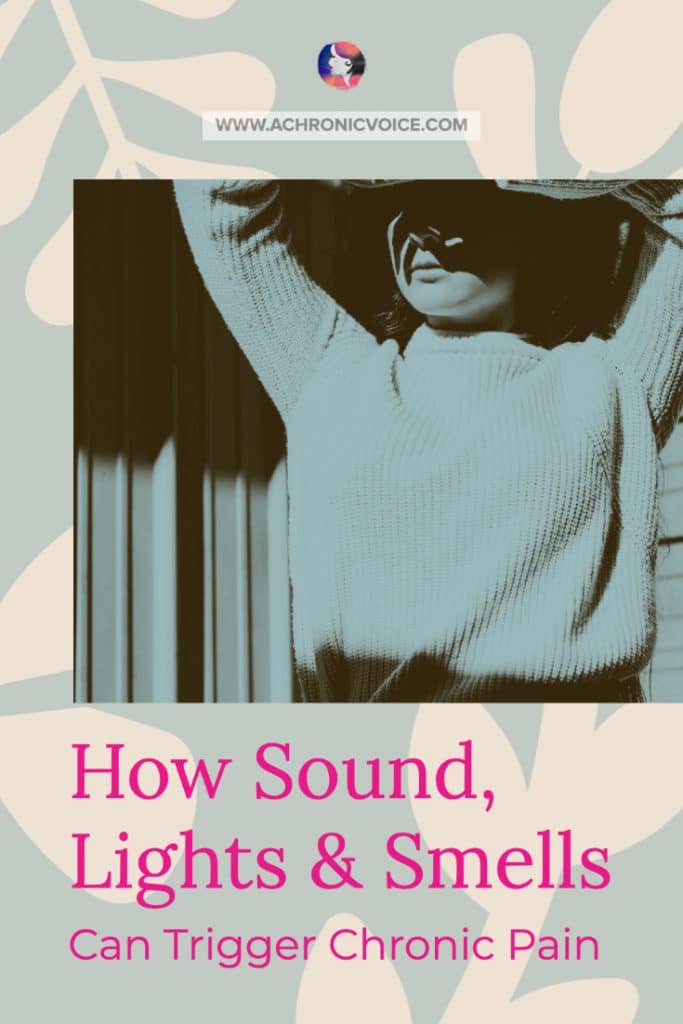
5. Chef or Kitchen Helper
Ooh, this one should be easier as you’re behind-the-scenes and don’t have to entertain anybody! But hey, people want their food piping hot – 10 minutes ago. So you work, and you work hard and fast. Except slicing and dicing and chopping and mixing are starting to take a toll on your hands real fast. The heat is also intense, and starting to make you feel faint. You don’t want to collapse face down on the stove whilst managing to chop a finger into two…
When You Need to Prep to Meal Prep at Home
At home, people with chronic illness need to plan not only their meals, but also plan on how to prepare their meals. Do they have the energy for it today? How much effort would it take and if they used that up on cooking, how much is there left for other tasks? Often for me, even opening a small packet of chilli sauce can be exhausting after a long day.
Many with chronic illness also own kitchen tools that have been modified to be more accessible. They don’t just have a knife, but a rocking knife. And a special can opener, high powered blender and more. Maybe the restaurant you’re working at will let you bring your own set of kitchen tools, but really, you only have enough energy to prepare a few meals. So nope, being a chef or kitchen helper is also one of the worst part-time jobs to work as well with chronic illness.
Pin to Your Chronic Illness Life Boards:
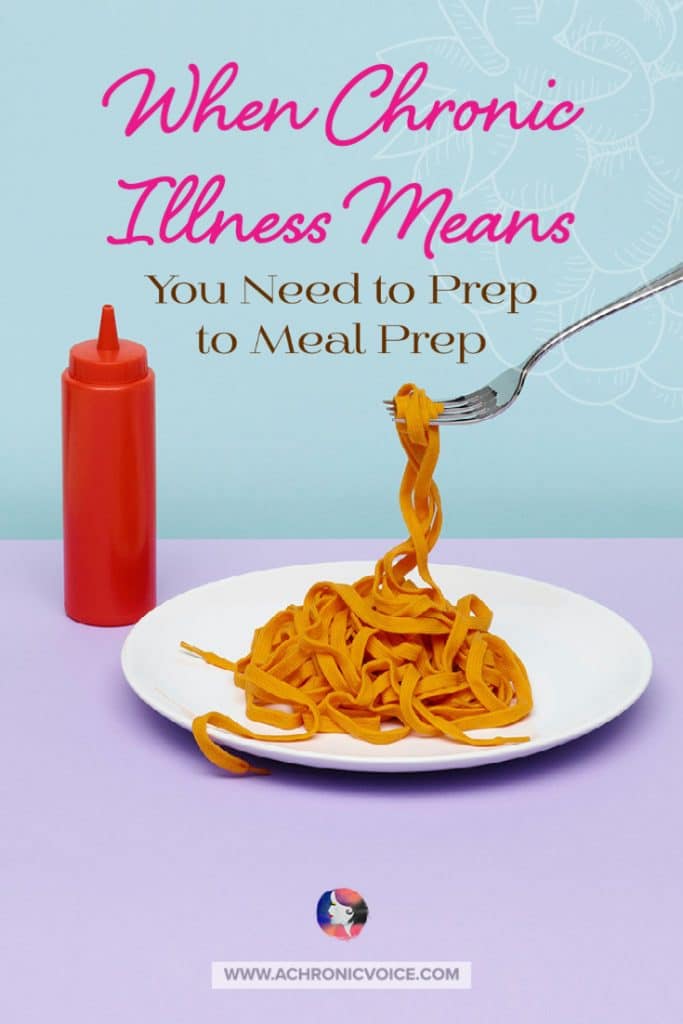
6. Beautician or Aesthetician
You probably need to undergo quite a bit of training for this one, so the boss will need to invest a bit in you. Talk about pressure. It’s definitely not a job for me because I can’t even paint my own nails properly. Besides not having the patience to get everything nice and perfect, my hands tremble from my epilepsy medications.
I’d have nail polish, creams, scrubs and lotions smeared all over customers in unwanted places. Or pluck out more eyebrow than I should have. Maybe waxing or sugaring is a bit easier if they ask for a full brazilian or leg wax, but from what I hear, it’s pretty tough work ripping those stubborn hairs out, too.
These part-time jobs also tend to require focus. Each customer has a different beauty request, and you need to do your best to fulfil them. Whilst a small mistake is usually reversible, it would probably take a month or so to regrow if you’ve already removed it from the body part. That as you can imagine, would make for some irate customers. Going on their first date with half an eyebrow, or a broken nail.
The actions you take to transform and beautify your clients are usually minute. Tiny little actions, chipping away and perfecting the shapes and features bit by bit. Whilst it’s not physically draining as if you were carrying carton boxes, it’s a whole new field of manual labour, too. You don’t need perfection when you transport items, but you do need it here. With brain fog and chronic fatigue, concentration can be extra tough as well.
So beautician part-time jobs… we’ll have to give that a miss.
7. Über or Cab Driver
Hey, you get to sit down all day, and if you enjoy driving, this should be the perfect part-time job, right? But sitting on your arse all day long can be painful and unhealthy, too. I know we sound like such whiners – can’t stand for too long, yet can’t sit too long. But the truth is we do need something in-between. There are even those with sitting disorders, where sitting is actually the most painful position.
This isn’t a part-time job for me because I have epilepsy and when you have that here in Singapore, you’re forbidden to drive for life. I’m not sure about your country, but epilepsy is a big one for not working as a cab driver. My direction sense is also the epitomé of atrocious. I can get lost even with GPS on my phone.
Whilst it’s not an outdoor toil in the sun job per sé, your arms and face are most likely exposed as a cab driver. Even if you slather on the sunblock in the winter months, there is still sun exposure. For people with Lupus, even a trickle of sunlight or UV light can trigger a flare. For others such as those with MCAS, sunlight can also cause a reaction. Yes, we’re pretty much reactive to everything.
People with MCAS or migraine might also be fearful as they never know who’s going to step into their car shrouded in perfume. Or strands of pet hair, or cigarette stench. They often find this off putting because it can trigger pain flares that last for hours, days, even months. Which would mean they’d be out of a job for that amount of time as well. So cab driver part-time jobs… we’ll need to pass on this one, too.
8. Bartender, Air Stewardess or Any Other Shift Work
Working late night hours? Just nope. I don’t think anyone with a chronic illness could do this one. Mornings and nights are usually our worst hours, but of a different sort of terrible. We struggle to get going in the morning before our medications kick in. But at night is where inflammation and pain levels rise with each passing hour, until we go to bed. That is, if painsomnia doesn’t keep us awake.
Then there’s all the cocktail shaking, smiling and dress code. Just nope. Working as a bartender, or any part-time jobs that require late hours, is quite frightening.
9. Tutor or Teacher
Some of those with chronic illness love to teach. Maybe a part-time role isn’t too bad, if they are okay with the routine. I love children. But for me, the requirement of needing to show up at a fixed time for each lesson fills me with dread. My aunt runs a tuition centre, and my mum has asked me to help teach there a couple times. But chronic illness is so inconsistent, and this is one job that requires consistency. And also patience, alertness and intuitiveness.
I dread to think how I’d be failing not just one, but maybe 20 – 40 young students for every day of work I miss. Education is important. They need teachers who care and who can show up. That’s not me, because I don’t have the physical or mental capacity to do so. I can’t even count 3 + 2 when my brain fog is flaring – it can be that bad. Just the thought of failing them stresses me out.
Pin to Your Career & Chronic Illness Boards:
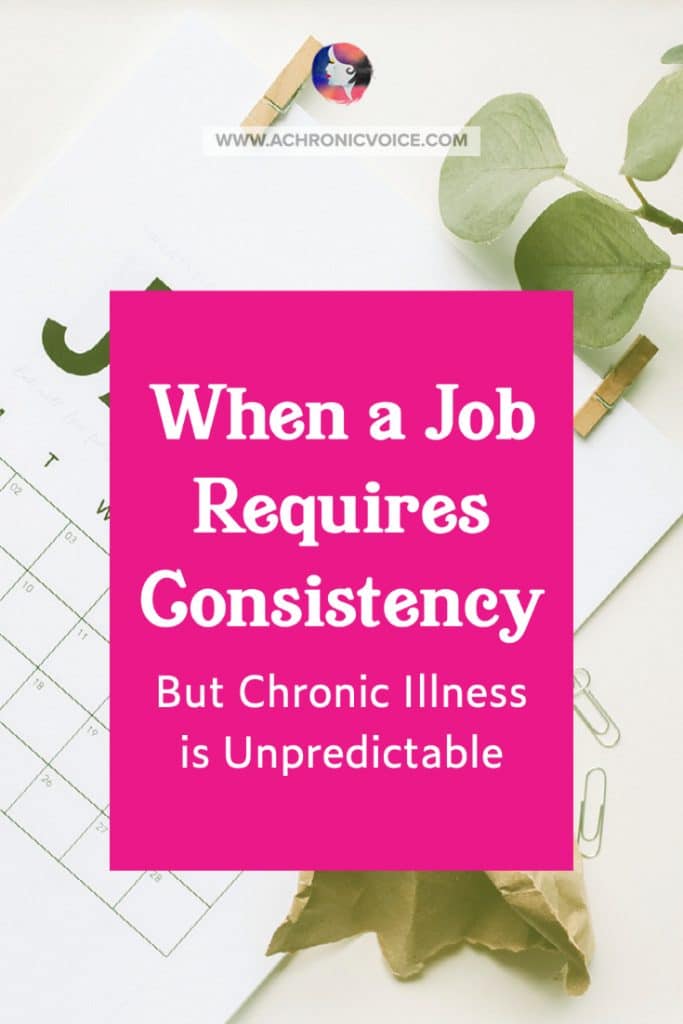
10. Musician
I admire those who have an aptitude for music, and all the emotions they can stir. But hey, musicians are known to lead pretty much wild lifestyles, even if it can be a part-time gig. They often need to drink drinks that appreciative fans buy for them, work late nights or shifts, have inconsistent schedules and more.
Even if you don’t play in a bar or try to be as sensible as you possibly can, all those practices for weddings and events can be tiring, too. Being a musician is not easy. Musicians will tell you that.
11. Photographer
Sure, you don’t need to work every day as a photographer. But having tried my hand as an assistant wedding photographer before, let me tell you it is a bloody tough job. You wouldn’t imagine it, but it is a rather physical job that requires strength and stamina. Lugging DSLR cameras and a variety of lenses gets exhausting after an hour or two. Yes, heavier than a bag of potatoes.
Here in Asia we need to go to the bride’s house at around 5am for the groom to come fetch the bride. And festivities don’t end until near midnight. You don’t even get a proper lunch break. Because you know, you need to take photos of people enjoying their lunch. You also need to be on your best behaviour all day, and be quick to capture candid shots. These memories are for life, and you can’t afford to screw up.
You could be a baby, pet or family photographer. Perhaps those are less time and energy consuming. But once again, it is a rather physical job that requires quick brain processing for that perfect shot.
12. Florist or Florist Assistant
Ahh, getting in touch, literally, with nature every day. And of the pretty kind. That can’t be bad, can it? If you didn’t know, I love flowers and doing floral arrangements. I used to go to the flower warehouse to pick out bunches here and there. And I enjoyed the process of cleaning them up and arranging them in a vase, as a present for others or for myself.
The reason I stopped is because flowers, even at the warehouses, are expensive in Singapore. It’d cost me around $100 each trip. And many of these flowers die pretty quickly in our hot, humid climate. Such as hydrangeas, which if you don’t freeze, can die within a day. So I can’t just leave the flowers aside and work on the arrangements the day after.
Another big reason is that floral arrangement is actually hard work on the hands. Who knew?! Manipulating the tools to remove thorns, clipping off stray and dead leaves, cutting off stems – some of which are quite tough – and other manual tasks left me with cramped, swollen hands each time.
So even though I’d be happy to be a florist assistant, I don’t think it’s suitable for my hands. By the way, Carrie of My Several Worlds does lovely floral arrangements for fun, too. She does Ikebana and purchases less at a go, so perhaps that’s a bit easier. Not in terms of creative direction, but on the hands! Check out her beautiful arrangements on her Instagram, wayoftheflower!

Amateur me arranging flowers for fun!
13. Freelance Web Designer or Developer
This is what I do for a living, so it’s possible! But what I’d like to emphasise here is the ‘easy’ aspect, as per the point of this post. Truly, every job has its upsides and downsides. The problem with freelancing, as compared to a stable part-time role, is obviously the fluctuation in income. I’m struggling this October as I have no clients. Zero. Then some months, I get quite a few that I overwork myself and fall into a pain flare that requires taking more medications. But what’s a girl to do? I can’t reject all those jobs, because there will be months where I get nothing.
Ideally, there would be retainer jobs, but usually it’s the bigger advertising agencies that have a need for that. And ad agencies are what I avoid if I possibly can. Working in the industry, after all, was what prolonged my high levels of autoimmune activity in the first place. Even if it’s a part-time role, trust me, it’s hectic. Ad agencies are infamous for having tight deadlines, late night hours and changes that need to be done right now. It’s not healthy for even healthy people.
14. Blogger or Writer
These are part-time jobs I do, too, so that’s another possibility! But once again, I want to highlight the ‘easy’ isn’t easy bit. Let’s do a quick breakdown. How do I earn money as a blogger or writer? From sponsored posts published to my blog, social media collaborations, affiliate links and ads placed on my site.
These, once again, vary widely by the month. I had no clients for September nor for October, so I’m left with only ad money. This is the third quarter of the year, also known as the quietest quarter in advertising, so even ad money and blog traffic have taken a huge hit.
And even so, the most I earn from writing an article is a few hundred dollars, yet I can spend weeks on it. The money isn’t worth it, per sé, but it’s still money. And something I can do. And something that does help with my blog traffic, too. I’ve gotten nearly nothing from blogging in September. Yet I still need to pay to maintain the blog. I spend approximately $100 a month on it for domain, hosting, and plugins that improve site efficiency and security. Otherwise viewers complain.
A Word on Paying Bloggers Fairly
Many clients don’t hold high regards for the general blogger either, and try to offer you $20, even $10, to write a post. Of course I ignore such disrespectful requests, but I do know of others who would do it for that amount, or for a small free gift such as a bracelet.
I respect each and every blogger’s decision. But what angers me is that these companies do have budgets, yet take advantage of a person who is poor and struggling to earn a living as it is. Even if they are a ‘startup with a small budget’ – I believe that they still need to pay bloggers as they deserve. That’s only fair.
A Side Note About Advertisements on Blogs & How You Can Support Chronic Illness Bloggers
By the way, there are also viewers who complain about the ads that some chronic illness bloggers run. That they’re distracting, shameless or disgusting – yes, really. Whilst this is a topic for another time, I want to say this here – many of the helpful posts that chronic illness bloggers write, and all the advocacy work that they do – are for free. They spend hours, and often burn all their precious energy to write them.
So unless you’re willing to pay them to write and advocate for you, then please shut up about ads on their site which helps them to earn anything from $0 (happens) to maybe a few hundred dollars (rare).
P.s. Some bloggers are on ad companies that do PPV (pay per view). This means that they earn money even if you’re just scrolling past the ads and not clicking on them, although the money is very little (a few cents for a thousand views…). It all adds up though. So if you want to show them support, read and scroll through their blogs! 🙂
In Conclusion to Working Part-Time Jobs with Chronic Illness
So that’s a list of ‘easy’ part-time jobs that may be easy if you’ve got the wealth of health, but detrimental if you have a chronic illness. A point I’d like to note is also that not all of these part-time jobs are impossible for every person with chronic illness. Our chronic pain and abilities come in all shapes and sizes, albeit often invisible.
I do know of some people with chronic illness who have been cab drivers, beauticians and more. It really depends. This list is more of a compilation of potential problems, hazards and stressors that a person with chronic illness may face, even if the job appears to be stress-free or simple.
Kind of like motherhood, living with chronic illness is a full-time job and one that’s for life. You can’t just apply for sick leave or a day off from it. It hounds you on holidays, and is the only companion who’ll stick with you faithfully until the day you die. There may be lighter days or bouts of remission, but that’s what the word ‘chronic’ means – forever and ever.
Some Things I’ve Learned About Disability Support From Reading Chronic Illness Blogs
Some countries such as the U.S. and U.K. have a disability support system to help people like us. (We don’t have that in Singapore, unfortunately.) But having read enough blogs from others with chronic illness, I’ve come to realise how flawed and painful that system can be, too.
First, you need to undergo assessment (often by a healthy person), who judges if you’re sick enough. The chronically ill are often disbelieved and ridiculed during this process. It’s not unheard of to keep trying many times. How do you prove an invisible illness that sometimes doesn’t even touch your appearance? How do you convince healthy people who are suspicious that you want to rip the system off that you really need aid?
Then, if you do manage to qualify for disability support, the amount granted is usually only enough to scrape through each month. Whilst those with chronic illness can still work part-time jobs to earn a bit of supplementary income, they can’t exceed a certain amount. Otherwise, their disability gets cut off because they’re deemed ‘self-sufficient’. Talk about a rock in a hard place.
Anyway, that’s a topic that I’m not adept at discussing as I don’t live in the US, UK, Europe or elsewhere. So I’ll continue to read and share posts from those who do to raise awareness about this issue.
Let’s Build an Inclusive Workforce Together
Thank you for reading this far. If you’re an employer looking to do some good, do hire a chronic illness or disabled person today. We may be disabled and our chronic illnesses may be unpredictable. But one thing is for certain – we all have our strengths. We need only find a sustainable way to maximise them.
*Note: This article is meant for educational purposes and is based on the author’s personal experiences. It is not to be substituted for medical advice. Please consult your own doctor before changing or adding any new treatment protocols.
If you liked this article, sign up for our mailing list so you don’t miss out on our latest posts! You will also receive an e-book full of uplifting messages, quotes and illustrations, as a token of appreciation!
Pin to Your Chronic Illness & Career Boards:
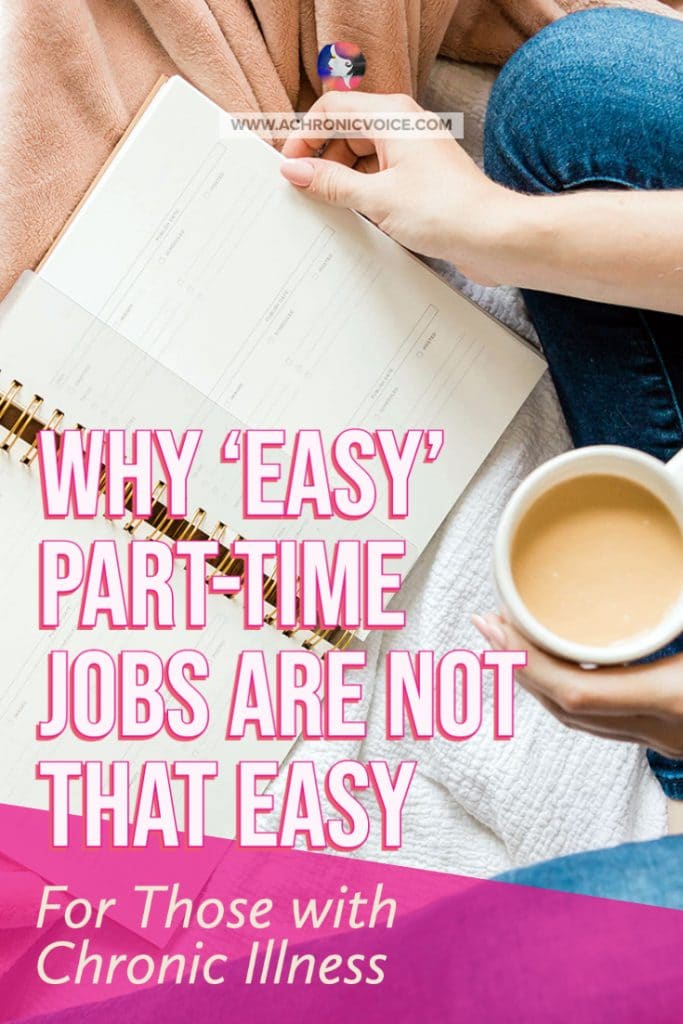
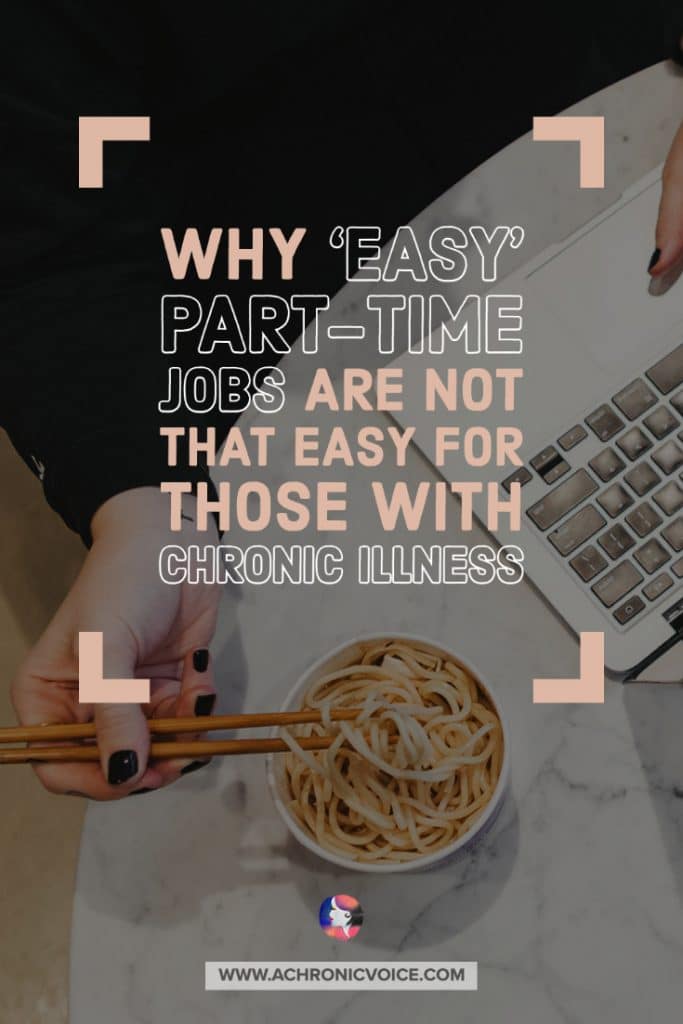
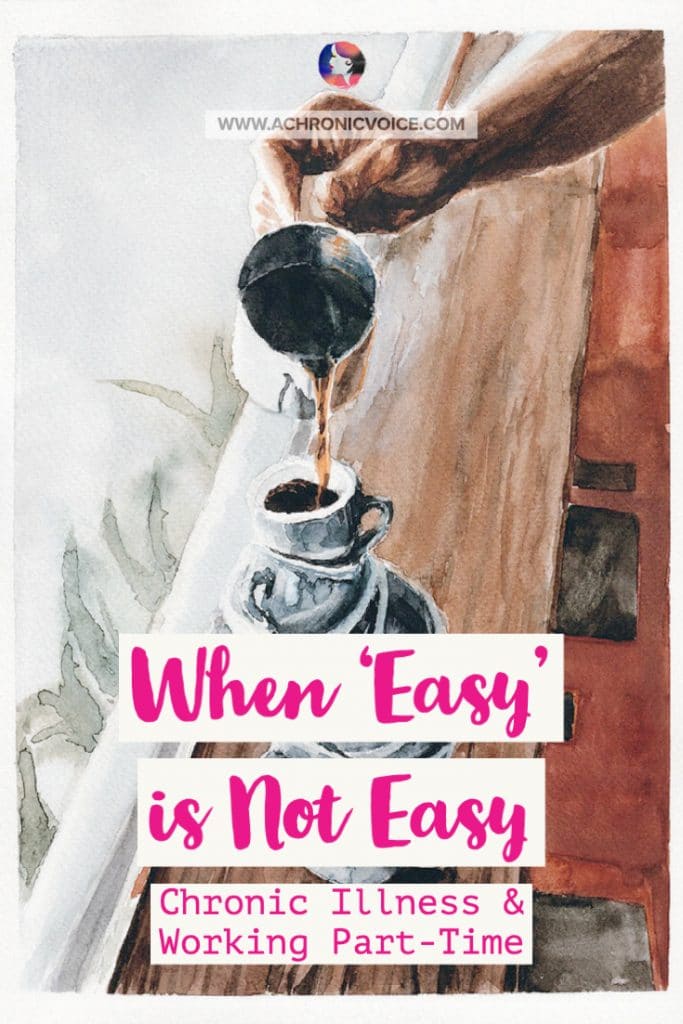
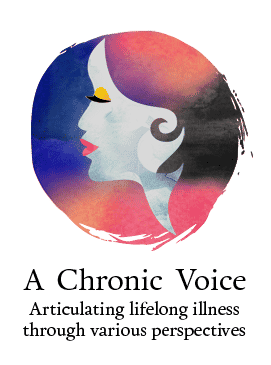
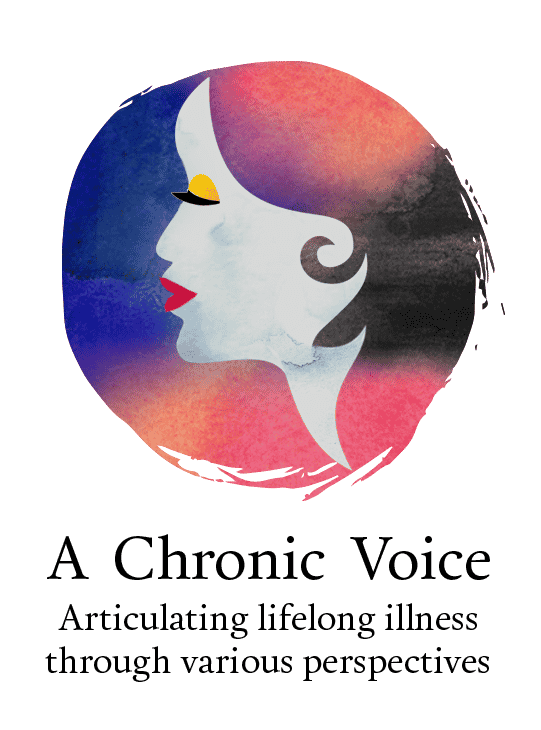

Sheryl, thank you for this post.
I’m a writer/content writer/editor, also, and it’s been a struggle to maintain secure and regular employment, even with all my qualifications and experience, which makes this struggle even more absurd.
Like you, I’ve had many close to me refer to flexi, part-time or self-employment jobs as the be-all-end-all. Unfortunately, what so many do not understand is that the pain is only half of it. We also have to contend with things like fatigue (from our bodies constantly trying to recover from pain that never recovers!) and from brain fog and neurological disturbances related to memory recall, concentration, and learning. These are just a few examples of the daily ‘grind’ pain sufferers are already on. Pain is a full-time job, in and of itself.
Thank you for using your platform to raise the consciousness surrounding chronic pain and chronic illness. I wish you, me, and all your readers health! x
Thank you for reading and sharing about your own experiences, Neve, I appreciate it! Yes work and career are such tricky things with chronic illness. Like you said, it truly is a full time job in itself and one that’s so tiresome and tiring.
I love the sarcasm and the general humour you’ve put in this blog post to share some truths – Truths that others believe are excuses. I know I’ll be sharing this with a few people who think it’s easier for those who don’t work as often.
Thanks for sharing the post Shruti! Haha that’s my regular sense of humour truth be told… which seems to be creeping into my writing more and more over the years 🙂
There is so much more to things then people realise, thank you so much for addressing this and sharing your thoughts <3 I hope today is treating you okay xx
Thank you Susie. Definitely much beneath the surface and super tricky with chronic illness and working!
I was a banker full-time which clearly was impossible for me, so I went down to a part-time teller. And while you do sit down for that it was still really problematic: fluorescent lights, as well as a lot of sunlight coming in. 100 customers instead of a set amount of appointments- so my chance for errors was Way higher when I couldn’t focus due to a migraine or brain fog. A lot of scent triggers. Just trying to work with high pain and other symptoms like fatigue and extreme nausea. Physical issues like a hand tremor which made writing hard. And while I coped as best I could for the income I was pushing myself hard– and then the sudden, abrupt continuous dizziness and vertigo started. And that I couldn’t push through at all. So that was that.
I do have some freelance writing side income. And I do have some occasionally blogging income which is unpredictable since my vertigo issues made me do a lot less on that front. It is hard. Functionality is lower and some days just not even there. Income instability really sucks.
I agree… the income instability is a real cause of worry month after month… living hand to mouth in your 30s is also depressing. Working as a banker sounds tough, too. I have no experience with part-time teller – but if you want to share I can add it to the post! 🙂
I had a reality check last week. I signed up to substitute teach in a few districts in my area. I have an app that shows the different jobs that are available. I feel pressed to help because there is such a shortage of substitute teachers. So, I signed up for a 1/2 day position that aI knew would be relatively easy. I thought I wouldn’t have an issue at all. WRONG! Out for the night and the entire next day for a job from 11-2:40 pm.
I applied for SSDI (USA) last October. I found out last week that I qualify. It’s such a relief, but to be honest, it hasn’t hit home that I don’t have to earn $. I’ve felt so much tension about it since I had to retire due to Fibromyalgia. I need to take a deep breath and allow myself to feel at peace with myself in this part of my being. For so long, I was a wage earner. It’s hard to let that go. I find I keep looking at different jobs.
I haven’t shared this out yet-that I’ve received SSDI and Medicare Insurance. It’s difficult for me to tell those who know me. I’ve shared with a few, most are very happy for me. A few, hesitate in their reaction and I immediately feel they see me as less.
Wow, thank you for this detailed post! What a great breakdown of why jobs aren’t “easy” for people with chronic illness. I especially appreciate that you talk about just how variable work and income are with freelance jobs. I’ve looked into freelance writing and people frequently don’t know the amount of behind-the-scenes work that goes into it. I’ve enjoyed doing a handful of guest/freelance posts but they’ve been unpaid, and I also make next to nothing blogging. I’d love to do more, but I’ll have to get much healthier first. I really appreciate all the work you put into raising awareness about this topic!
Great post Sheryl!
I love how you’re pointing out the flaws in others’ assumptions – “easy” jobs aren’t! There’s a lot of bias out there, and the assumption that disabled folks, especially those of us with invisible chronic conditions, are lazy is one of the big ones. We deserve more respect than we receive and it definitely can be a fight to get the supports we need.
Here in the US I’ve written a lot about the brokenness of our systems, as well as how to get on them, because they are still better than nothing. Getting the help is hard, and often damaging to mental/emotional health, and the supports really do tend to be less than ideal. I’m all for UBI or other alternatives because the current system is damaging.
I’ve got a stress-responsive condition, so for me the pressure alone is often what makes working hard to do – I can make it through for a while, but there’s often a cascade at some point where my movement symptoms are triggered by the stress around working, which increases the stress and makes my symptoms increase and worsen. I’m better at pacing and stopping myself before these things happen, but it isn’t easy.
Thanks again Sheryl, for putting this together!
I would like to add a job to your list: Online scorer. The pay can be low and you will need a Bachelor’s degree but it is flexible. I have done it since 2007 and knowing I have some money coming in every month has been invaluable. Most companies have projects you sign up for and you score the same standardized tests every year. The more you score the more likely you will be asked to be a team lead. I recently started with another company and the pay is double what I made with the other company. But I’m able to work both because they schedule differently. Just a thought that might help someone.
Hello Chelle, thanks for sharing! Yes for sure, there are many jobs we can still work! There will be a separate post for that specifically 🙂 This one tries to highlight the why ‘easy’ isn’t easy bit 🙂
Thank you for sharing that idea. As a retired teacher, that could be something I look into.
This is such a great post Sheryl, thank you. I hope it falls into the hands of many people to educate them and break down the stigma of the chronically ill being lazy. It’s so frustrating when I still feel capable of so much yet my body isn’t and it’s so difficult to find even a part time job which I’m able to do without setting my health back. I’m totally with you on your excitement of being a cashier. One of the small joys I get some days is going through the self check out and scanning the barcodes of my shopping, it never fails to make me feel excited! Thank you so much for mentioning the comments regarding ads. I’ve had one and it made me feel so disheartened. In a weird way I’m glad I’m not alone in having received those comments but thank you for challenging the negativity that can be received. It’s my only source of income at the moment.
Thank you Lucy! Haha it’s funny I’ve found someone who likes playing at cashier, too! Yes I know you had a Twitter comment about that and comments like those anger me. We’re all just trying to survive and should always support each other (to reasonable extents), and not tear each other down. Sending hugs. Do what you do best x
Great post, Sheryl! You’ve covered all of it. I wish that people could see our value and understand that there are things we can do better than others. I have a diverse range of skill sets, but it’s just so hard trying to find things to make it all mesh together.
No job is easy, even part-time jobs, when you’re dealing with the full time position of being chronically ill.
Teaching is A LOT of work, even if you’re only doing 10-15 hours a week. Musician – I’ve done that too and no one really understands how much effort it is to stand, move and sing. Singing takes A LOT of energy, which is why I’ve had to retire from that field completely. And photography, I had a good side gig going with that until my camera equipment became too heavy to lug around. Plus you have to do a lot of running around for photos.
Thanks so much for the mention with Way of the Flower, by the way!
Yes first a full-time (unwanted) job of taking care of chronic illness, then everything else, sadly. You would know best about the teacher one, being a teacher and employer yourself! And most welcome, love your creations! 🙂
Excellent post, Sheryl. Sometimes people think it would be easy to find work and hours that suit. But the unpredictable nature of what we live with often makes it extremely difficult to consider working. On a better day, I might think oh, maybe I could do something…then the following day, I am reminded why I can’t.
I remember when I first retired from work at 28, a friend suggested that I could get a ‘wee job in a nursery’. I love kids, however, I could hardly manage out of bed without help and I struggled to walk. Yet they thought I’d manage to help look after a bunch of kids under the age of five??? I think it’s an example of how people’s minds work when they don’t really try to understand what you deal with.
It must be so difficult there with no benefit system to help people who can’t work due to their health problems. I am grateful that we have that in the UK, but it is far from perfect. Claiming benefit here is extremely stressful and depressing and the assessments and judgements are awful. The system is very flawed and unfair.
Haha yea…I get the same suggestions, ‘a wee little job’, hence this post! Yes I am admittedly a little jealous of your NHS! But we all make do with what we have at the end of the day 🙂 Sending hugs my friend.